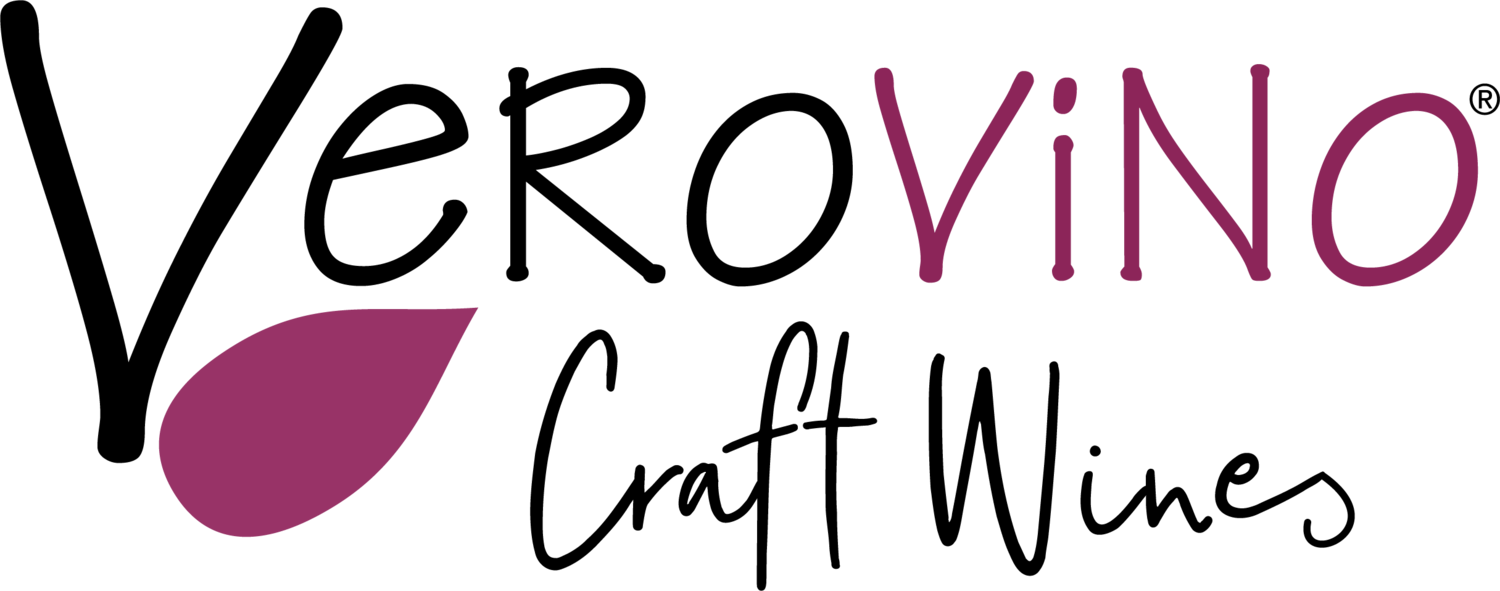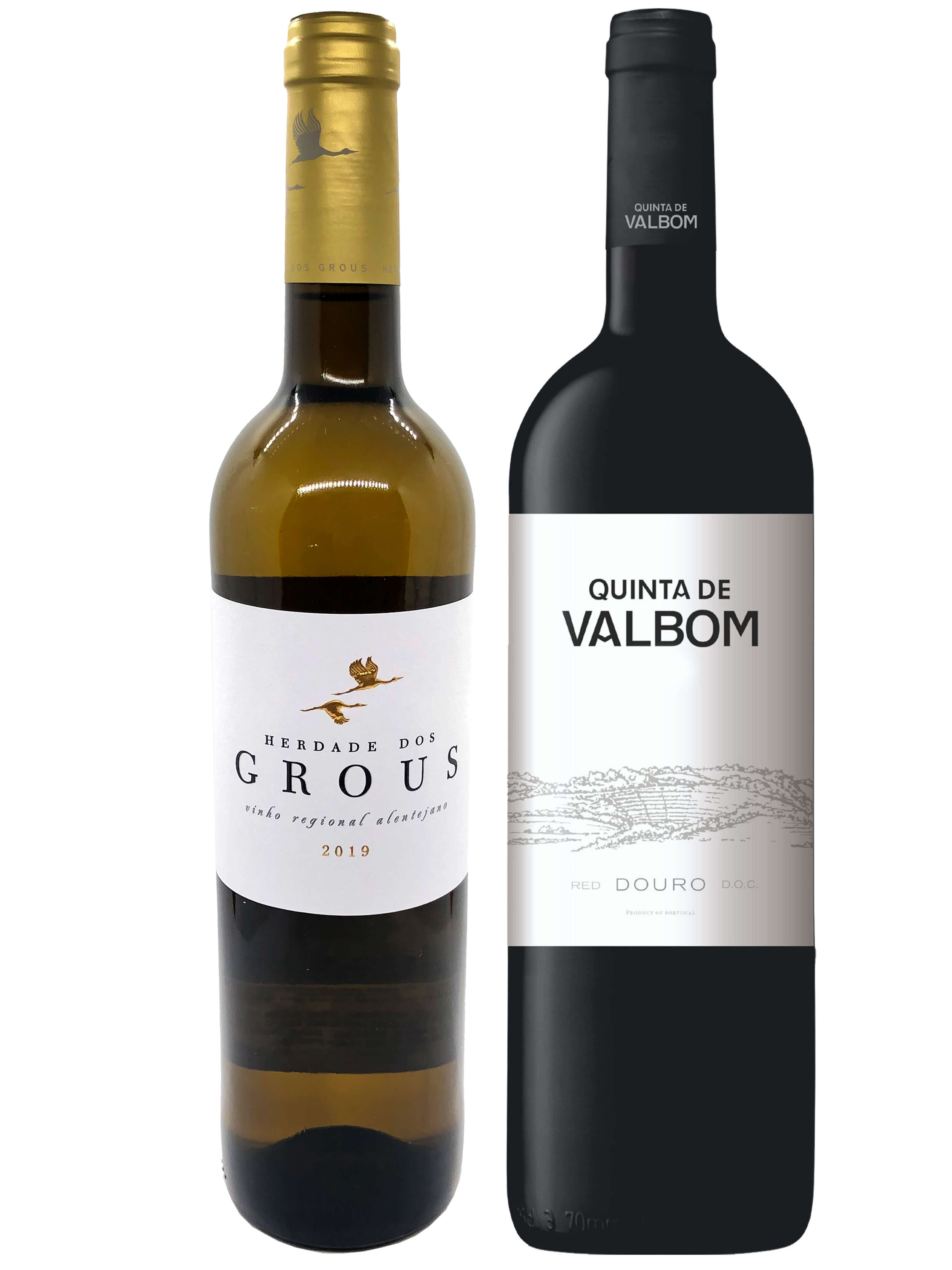Stepping Back and Looking Forward: Exclusive Interview with Top Winemakers in Portugal
Our exclusive interview earlier this month with top Portuguese winemakers, Luis Duarte and Mafalda Vasques, gave a first hand account of the revolution and transformation in Portuguese wines over many years.
Woman winemaker, Mafalda Vasques, at her Quinta de Valbom estate winery in the Duoro River Valley, Portugal.
Why is it that no one heard of Portuguese dry wines until recently?
Certainly we knew about Port, the fortified wine from the Douro, but where did all of these wonderful dry wines come from?
As mentioned previously in this series of articles about Portugal and its wines, political forces and other factors kept the Portuguese from making dry red and white wines for export. The demand for Port meant most of the grapes grown in the Douro went to fortified wines. The Salazar dictatorship (1933-74) required many Alentejo vineyards to uproot their vines and grow wheat. With a change in political power, the Alentejo was back in the wine making business with DOCs established in the 1980s; production has quadrupled since then.
One of the leaders in Portuguese winemaking is Luis Duarte, Director of Winemaking in the Douro for Quinta de Valbom and in Alentejo with Herdade dos Grous. Duarte was in the first class of students to study winemaking in Portugal. He has seen the Portuguese wine industry transform over his 30 years as winemaker.
“Before me, winemakers studied in France or in the US at UC Davis or in Australia,” Duarte said recently. He was the first winemaker trained in Portugal to make wine in the Douro and soon he was the first Portuguese trained winemaker to work in the Alentejo which at that time was a 10 hour drive away, and now, with better roads, is only five hours, which is still quite a distance.
During a recent VeroTalk, two Portuguese revolutionaries-- winemakers Mafalda Vasques and Luis Duarte-- spoke about how they came to work in wine.
‘My playground was a farm growing up’
Luis lives with his wife Dora Simões and their three children near the beautiful hilltop medieval castle of Monsaraz located by the border with Spain in the Alentejo region. In addition to making wine in the Alentejo, he has projects in the northern Portuguese area of the Douro which is famous for Port but today is also known for dry red wines; he makes both.
Luis began making wine over 30 years ago, and during his career, he has earned many accolades including Best Winemaker in Portugal three times in 1997 not long after he left college, again ten years later in 2007, and a third time in 2014. In 2015 the President of Portugal, Aníbal Cavaco Silva, honored Luis with the Order of Business Merit, in the Agricultural Merit class. A German magazine named Luis as the Best Winemaker in the World.
When he first won the award of Best Winemaker in Portugal, he was quite a young winemaker, only 31 years and only 10 years out of school: “When someone recognizes you, always it's very good. And it's very important for me the first time that I won the best winemaker of the year. It's incredible for me; it was something beautiful.”
Born in Angola, Africa, Luis lived there on the family farm until he was nine years old. Those short years had a huge influence, but, he says, “not in a wine making way...my family in Africa worked in agriculture and they have farms and produce a lot of different things.” The farm was his playground: “I loved living on the farm and contact with the agriculture, with the land. And I believe this was very important” as a winemaker.
Luis and his family moved back to Portugal after they lost everything they had during the war in Angola for independence: “We lost the land, we lost the house, we lost the cars, we lost the money.” The loss of the family home and land, and the changes that entailed, had a huge impact on the young boy, and helped him to understand that all people suffer a lot. “We always want something more,” he said, “we're looking for the future, to create good conditions for all the family.”
Having to start all over again prepared him for the challenges in winemaking where you’re always starting over after each vintage: it “gives you more force to change your life again, to be better prepared.”
Luis carried on the family tradition of working in agriculture but he took a different direction: he studied oenology at the University of Trás os Montes and Alto Douro (UTAD), where he was one of the first graduates in the fledgling program.
But his career in wine is not that surprising: “When we come back to Portugal after leaving Africa...my parents are from the wine region of the Douro. All my friends, we all work in wine making or sell produce.”
It was wine, wine, wine all the time: “All people talk about wine, all people, my grandfather, produce wine. Port wine. I have a bottle of Port wine from him. When you live in a wine region, all the life is about wine. Yes, I believe that influenced me a lot because when I need to decide, I decide I want to go (to college) to be a winemaker and because I always love to work with agriculture. And this perhaps because I lived in Africa.” Luis found his first job in the Douro where he learned the magic that is winemaking: transforming juice into wine that people love.
‘I’m the next generation of winemakers’
Winemaker Mafalda Vasques followed a different path into winemaking, yet she is also a revolutionary as this traditionally is a field full of men. Unlike Luis, she doesn’t have family related to wine business or production but instead a passion for the field-- a passion she inherited from her dad. She enjoyed nutrition and food so studied wine making and oenology at university 10 years ago and then traveled and worked abroad in several countries including Australia where she didn’t feel much of a difference between how men and women were treated in the wine business.
Next she went to Italy for another harvest and found it to be totally different, and much more difficult to be a woman in this sector. In Italy it’s still a man’s job, she said. “In Chile everybody looked at me as a fragile woman.” But she was “working like a man.” At first she found it hard to convince the men that she could do their tasks as well if not better. “I think I achieved my place also there.” She finished in France where “it was really similar to Italy again.”
Fast forward 10 years, and after six years now working with Luis Duarte since 2015, Mafalda says, “I think in the wine world things are getting better.” Nowadays, she says that tasks are not gender based: “no one has this mentality here. Actually we are more women than men here; we are a company almost run by women. It’s important to see this change in the sector as well. I think we are doing a great job. They (men) allow us to come to this (wine) world and not to take their place over but to be on the same stage.” Luis agreed, and pointed out further, “We need them, the women on the stage.”
Vineyard and olive tree orchard landscape of Herdade dos Grous estate winery in Alentejo, Portugal.
Both Mafalda and Luis have lived in both the Douro and Alentejo. Luis went to college in the Douro, but has lived in Alentejo since 2007, almost 15 years. The two are very different landscapes with The Douro more lush and green with steep sided river valleys while Alentejo is broad expanses of rolling hills dotted with oaks and fragrant with lavender growing wild. In the Alentejo, olive orchards are interspersed with vineyards, where sheep graze.
After 30 years of winemaking, Luis has seen a lot of changes in Portugal. In the Douro, thirty years ago people were only making Port for export, with dry wines for home consumption, not for export like they are now. In Alentejo, thirty years ago, winemaking was just beginning to make a comeback after many years of cereal production required by government policies.
It’s been an exciting time to be a winemaker in Portugal with opportunities to work with both indigenous Portuguese grapes and international varieties including Antão Vaz, Arinto, Sémillon, Verdelho, Viognier, Alicante Bouschet, Aragonês, Petit Verdot, Syrah, Touriga Nacional and Tinta Miúda.
There are also unexpected new challenges, like those presented from climate change. Luis Duarte has been instrumental in promoting WASP, the Wines of Alentejo Sustainability program. Both Luis and Mafalda are committed to the three pillars of sustainability: environment, social, economic.
According to Luis, there’s been a revolution of good wine in Portugal. “If you asked me 30 years ago it would be so difficult to say five good wines not difficult to find five bad wines! So nice and beautiful to see what is possible,” said Luis. Possible with revolutionary winemakers like these!
Obrigada, Luis Duarte and Mafalda Vasques. Thank you for spending time with us and tchau!
Now, go and taste their wines! Buy them online and we ship to you.






